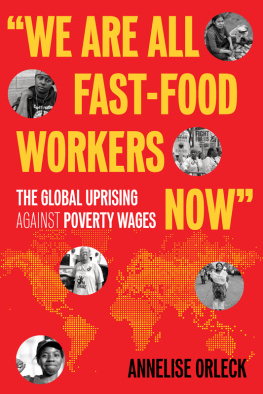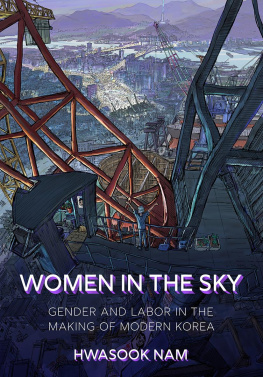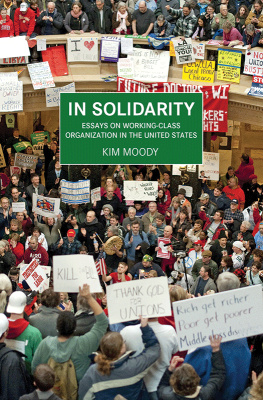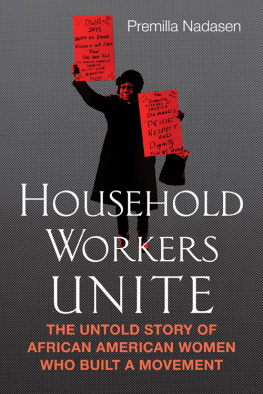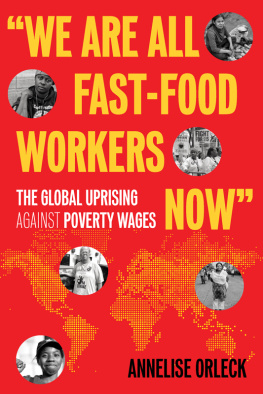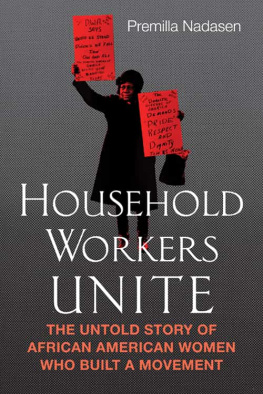PRAISE FOR Common Sense and a Little Fire
Substantially expands our knowledge of twentieth-century working-class womens political activity. Readers seeking an accessibly written introductory work and scholars studying womens labor, working-class feminism, public policy, consumer movements, or the connections between womens (and mens) personal and political choices will find this book interesting and important.
New York History
Orlecks intelligent work reminds readers of a time when workers fought valiantly for the right to be represented by a union. Focusing on the lives of four remarkable womenFannia Cohn, Clara Lemlich Shavelson, Pauline Newman, and Rose SchneidermanOrleck weaves a complex and compelling story of class and ethnic tensions, the struggles for workers rights, internecine warfare, and above all, the extremely gendered nature of both politics and work.... Their stories, as related in this tightly written, fascinating work, reveal whole new layers to the history of women and the working-class struggle.
Choice
An interesting and important study. Common Sense and a Little Fire is worth the read.
Journal of American History
A finely nuanced study of four extraordinary women who campaigned throughout their long lives to make room in the house of labor for working-class women and the activists who serve them.
Industrial and Labor Relations Review
Annelise Orlecks work made me remember why I wanted to be a historian. I am simply astounded by the artfulness with which she weaves together these four womens stories in a narrative that casts half a century of working-class and political history in a fresh new light.
JACQUELYN DOWD HALL,
University of North Carolina at
Chapel Hill
COMMON SENSE AND A LITTLE FIRE
GENDER & AMERICAN CULTURE
Coeditors
Thadious M. Davis
Mary Kelley
Editorial Advisory Board
Nancy Cott
Jane Sherron De Hart
John DEmilio
Linda K. Kerber
Annelise Orleck
Nell Irvin Painter
Janice Radway
Robert Reid-Pharr
Noliwe Rooks
Barbara Sicherman
Cheryl Wall
Emerita Board Members
Cathy N. Davidson
Sara Evans
Annette Kolodny
Wendy Martin
Guided by feminist and antiracist perspectives, this series examines the construction and influence of gender and sexuality within the full range of Americas cultures. Investigating in deep context the ways in which gender works with and against such markers as race, class, and region, the series presents outstanding interdisciplinary scholarship, including works in history, literary studies, religion, folklore, and the visual arts. In so doing, Gender and American Culture seeks to reveal how identity and community are shaped by gender and sexuality.
A complete list of books published in Gender and American Culture is available at www.uncpress.org.
COMMON SENSE & A LITTLE FIRE
Women and Working-Class Politics in the United States, 19001965
ANNELISE ORLECK
Second Edition | With a new preface by the author
The University of North Carolina Press | Chapel Hill
1995 The University of North Carolina Press
Preface to the second edition
2017 The University of North Carolina Press
All rights reserved
Manufactured in the United States of America
The University of North Carolina Press has been a member of the Green Press Initiative since 2003.
Cover photograph by Julius Lazarus. Courtesy Julius Lazarus Photographic Archives and Collection, Special Collections and University Archives, Rutgers University Libraries. Rutgers University Libraries.
The Library of Congress has cataloged the original edition of this book as follows:
Orleck, Annelise.
Common sense and a little fire: women and working-class politics in the United States, 19001965 / Annelise Orleck.
p. cm.(Gender & American culture) Includes bibliographical references and index.
1. Women in the labor movementUnited StatesHistory20th century. 2. Working-class womenUnited StatesPolitical activity. 3. Jewish womenUnited StatesPolitical activity. 4. Women social reformersUnited StatesHistory20th century. I. Title. II. Series.
HD6079.2.U 5075 1995
331.47809730904dc20. 94-24544 CIP
978-1-4696-3591-0 (pbk.: alk. paper)
978-1-4696-3592-7 (ebook)
To the memory of my father, Norman Orleck
And to the memories of Rose Schneiderman,
Fannia Cohn, Pauline Newman, and
Clara Lemlich Shavelson
PREFACE TO THE SECOND EDITION
In the years since Common Sense and a Little Fire was first published, the fields of working-class womens history, immigrant history, and labor history have been transformed. Analyses of race and gender have become thoroughly intertwined with discussions of class. Important studies have been published on women workers and popular culture, on Italian and Puerto Rican garment workers, on multiculturalism in the labor movement, and on the globalization of the garment trades. Labor history has moved off the shop floor and out of the union hall into working-class neighborhoods, schools, and kitchens. These changes have enriched our understanding of U.S. working-class womens politics, evoking a world whose complexities would, I think, feel familiar and accurate to the Jewish immigrant women activists whose stories this book tells.
In some ways, the garment industry has also changed dramatically in the decades since 1995. In other waysthe dominance of the electric sewing machine, large retailers subcontracting rush orders to small manufacturers, and sweatshop labor conditionsgarment work remains remarkably unchanged, not just since 1995 but since 1905. There is much about twenty-first-century garment work, organizing, and cross-class coalition-building that would feel familiar to the immigrant women who labored in garment shops in New York early in the twentieth century. But there are other dimensions of the tradethe globalization of capital, the rise of transnational corporations, and the competition among the worlds poorest countries for foreign investorsthat would be almost unrecognizable to early twentieth-century activists. These crucial changes and continuities in the garment industry and in the lives of garment workers and their struggles for better wages and safer conditions moved me to write this preface to the second edition of Common Sense and a Little Fire. It is important, as one reads history, to reflect on the world we live in today. And, as we think about our world, it is always crucial to understand its roots in history. In that spirit, I begin this new edition in New York City in 2011.
RETURNING TO THE GREAT HALL
As evening settled over Lower Manhattan on March 25, 2011, hundreds of people poured into the Great Hall of the Cooper Union, a column-lined subterranean auditorium that has played an outsize role in the history of New York City and the nation. The crowds were there to commemorate the 100th anniversary of the Triangle Shirtwaist Factory fire, the infamous blaze that killed 146 workers on March 25, 1911mostly Jewish and Italian immigrant women. Thousands of New Yorkers watched in horror, gazing up from the streets below as young workers fell to their deaths, burned alive or suffocated from smoke inhalation.
This industrial horror took place just a block and a half from Washington Square Park and the fashionable townhouses that surrounded it. As a result, the fire was a trauma experienced not just by the citys poor and striving but also by the artists, reformers, and students who lived and worked nearby. The Triangle fire became an iconic moment in the history of New York City and of American labor, a turning point in attitudes about workers rights and workplace safety. Its centennial offered an occasion to mourn and to learn some history but also to reflect on where workers have come since then.


